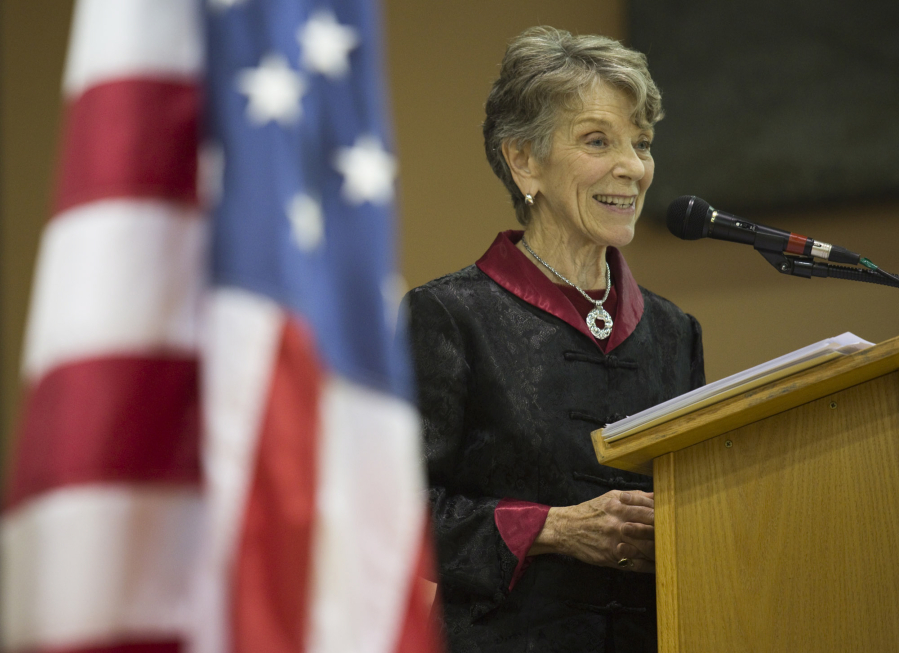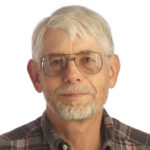Imagine that the resource you rely on to feed your family has the capacity to kill you.
That can be a problem.
A nonprofit with its roots in Clark County is addressing that problem by finding — and blowing up — old land mines, bombs and artillery shells.
The group’s origins are woven into the story of a Vietnam War memorial that was dedicated Oct. 15 in Vancouver. Family members of Lt. Dan Cheney, a Columbia River graduate who was killed in 1969, were keynote speakers at the event.
Jerilyn Brusseau, sister of the Army helicopter pilot, and their mother Rae Cheney told how the family turned sorrow into service through their organization. PeaceTrees Vietnam works in Quang Tri, which was the northernmost province in South Vietnam and the site of heavy fighting.
They estimate that 10 percent of all the bombs, shells, rockets and grenades that were dropped, fired and thrown in Quang Tri did not explode.
After the war ended in 1975, “tremendous numbers of unexploded munitions remained, from aerial bombing as well as ground combat,” said Brusseau, a 1961 Battle Ground High School graduate. “They’re everywhere — in school yards with kids playing nearby, in fields.”
They range from munitions that look like rusty tennis balls “to 2,000-pound bombs, 6 to 7 feet long. We just cleared our 100,000th” unexploded ordnance, Brusseau said.
PeaceTrees Vietnam works in partnership with the U.S. State Department, Quang Tri provisional officials and the Vietnamese government, said Claire Yunker, executive director of the Seattle-based nonprofit.
The agency sponsors 34 mine-clearance personnel who “collect between 60 and 100 explosive remnants a week,” Yunker said.
Some of the unexploded ordnance, or UXO, clearance is done with metal detectors.
“A lot of the work is like 911 calls: ‘I think I might have a bomb,’ ” Yunker said.
DIY bomb disposal
And then there are the do-it-your-selfers. They’re “people who clear their own land and pile it up in a corner,” Yunker said. Then they will call authorities and say, ” ‘Come over and pick up what I found,’ which is really scary.”
Despite the danger, “we have not had an accident in our entire history,” Yunker noted.
PeaceTrees Vietnam has cleared about 900 acres. The next step is working with villagers to put the land to good use, which includes farming.
Micro-credit programs help farmers and gardeners move beyond subsistence agriculture and grow high-value crops for the market. A program to grow black pepper trees “has the potential to raise their incomes twenty-fold,” Yunker said.
PeaceTrees Vietnam also has built a dozen schools and 10 libraries. Another outreach program involves land mine education and UXO awareness.
The organization also is involved in person-to-person diplomacy.
“We bring volunteers to Vietnam, usually in groups of 12 to 14. We’ve had 60 delegations so far, about three delegations a year,” Brusseau said.
Many are American veterans who went to Vietnam decades ago in a much different role.
“They come back in peace,” Brusseau said. They also get to participate in the work. For three veterans, that meant blowing stuff up.
“We always visit our de-mining team to witness the scope of that work. Every Thursday at 8 a.m., there is a detonation of the previous week’s ordnance,” and those three veterans got to take part.
“They knelt to reach the detonation switch, all three punched the button, and there was a tremendous explosion,” Brusseau said. “Detonating bombs that would never injure anyone: These moments are what our work is about.”




